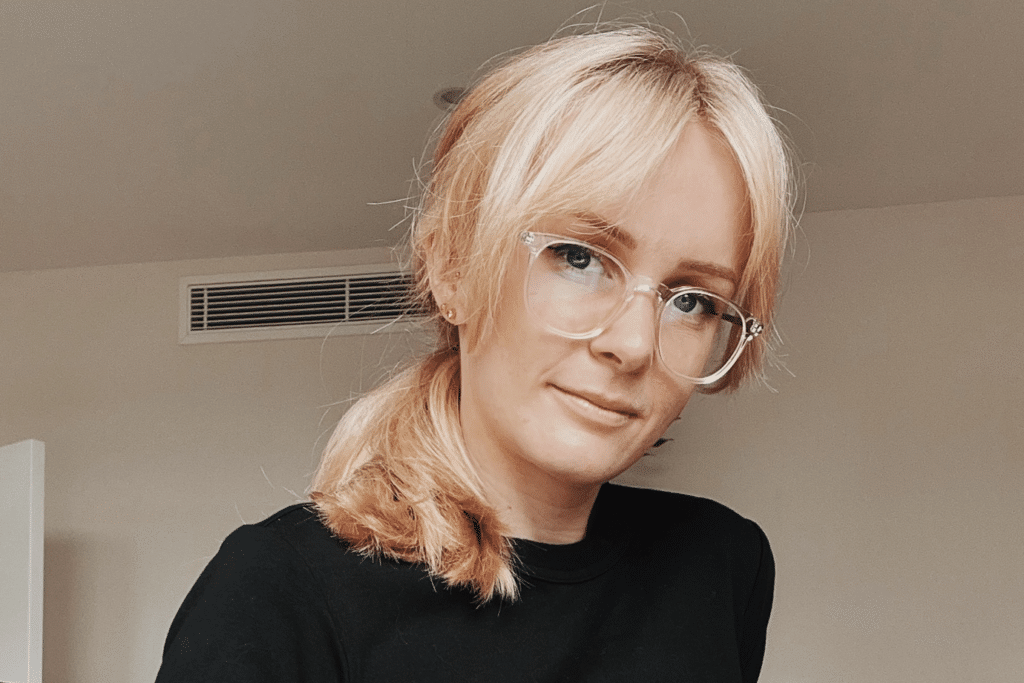In July 2021, I was at the top of my game. I had almost a decade of experience under my belt working in the hyper-competitive tech industry. I had just been featured on the Top 100 List of Emerging Engineering Leaders globally. I was excelling in my role as a product and engineering leader.
I was also experiencing autistic burnout so severe that I would soon be hospitalised and unable to work for six months.
It was during this period of hospitalisation that I was diagnosed with autism and ADHD, a turning point that would lead me to realise just how unhealthy and unsustainable my approach to work was.
As I spoke to my doctors and therapists, I realised that the ‘high-performer’ label I had earned throughout my career was not an accomplishment but a reflection of how hard I was trying to keep up with an industry culture that wasn’t built for people like me. To prevent myself from burning out again, I had to find a workplace that was happy to support and accommodate my needs as an autistic person with ADHD.
Unfortunately, I quickly learned that was easier said than done.
The discrimination, stigma, and backlash that I experienced when disclosing my diagnoses to potential employers were as shocking as they were disheartening. One particular incident stands out vividly: while in the final stages of the interview process for a role as chief technology officer – a position that I was highly qualified to take on – I told the panel of my diagnoses, watching as their faces fell and the room fell silent in response. Then, they asked the question that to this day serves as a stark reminder of the pervasive misconceptions and judgments surrounding neurodivergent individuals: “How can you lead people if you’re autistic?”
Despite having years of successful leadership experience in the tech industry – and despite proving throughout the interview process that I was more than capable – revealing that I was autistic immediately put my abilities into question. I wasn’t offered the job, but this was an experience that would go on to fuel my passion for creating safer workplaces for neurodivergent people.
Creating a brighter future
After several experiences ranging from casually ignorant to blatantly offensive, I realised why so many people on the spectrum don’t tell their employer that they’re autistic or neurodivergent. In a neuronormative working culture, few people make time to truly understand or support disabled people. This often leads many people to keep their diagnoses to themselves in an attempt to not ‘rock the boat’. However, without adequate support, many neurodivergent people find themselves unemployed just three to six months after joining a new organisation.
Even once I found a job for a company that agreed to help accommodate my needs – for example, working remotely multiple days a week and scheduling meeting-free days – I constantly found myself battling preconceived notions about my abilities and encountering microaggressions.
While these experiences were some of the most difficult of my life, the adversity I faced was the catalyst for The Safe Space Collective. Envisioning more inclusive, meaningful, and supportive workplaces for neurodivergent people, I realised that while there were plenty of training seminars available to help workplaces support disabled employees, there weren’t any functional resources that helped businesses implement support day-to-day.
That’s when I decided that The Safe Space Collective would be exactly that: a hub that offered tailored and affordable education, advice, tools, and strategies that empower workplaces to support their neurodivergent staff. Through collaboration, education, and advocacy, The Safe Space Collective would give neurodivergent individuals and their employers access to meaningful and sustainable career opportunities.
As the only hub of its kind, we aim to be an ‘always on’ partner for businesses, providing resources, support, and guidance to HR teams and leaders. By bridging the gap between awareness and action, we want to ensure that neurodivergent employees not only survive in the workplace but thrive.
Overcoming harmful workplace norms
One of the biggest challenges for neurodivergent people is the neurotypical cultural practices that define most workplaces. The insistence on in-person conversations, return-to-office policies, and the expectation to conform to social norms can create a difficult environment for neurodivergent individuals to thrive in.
These are the beliefs that The Safe Space Collective is pushing back against – the idea that for a business to be successful, every employee must operate in the same way. We now know definitively that this isn’t true, with research showing that businesses with neurodivergent employees are 30 per cent more productive than those without them. It’s never been more clear that with greater inclusivity comes greater success.
To achieve true inclusivity, workplaces must go beyond lip service. It involves actively incorporating neurodivergent perspectives into the decision-making process, accommodating diverse communication styles, and reassessing workplace norms that disproportionately disadvantage neurodivergent individuals.
As I have learned over the past few years since being diagnosed, the mental load of disability advocacy is enormous and we need to stop expecting disabled employees to carry it on their own. With ample resources available, it’s time for workplaces to step up by fostering an environment of genuine understanding and support.
The road ahead for The Safe Space Collective involves relentless advocacy, education, and empowerment for people on the spectrum. We are committed to dismantling the barriers that prevent neurodivergent individuals from realising their highest potential. It’s not just about creating a space, it’s about redefining the very nature of workspaces to ensure that every individual, regardless of neurodiversity, has the opportunity to pursue their dreams.


